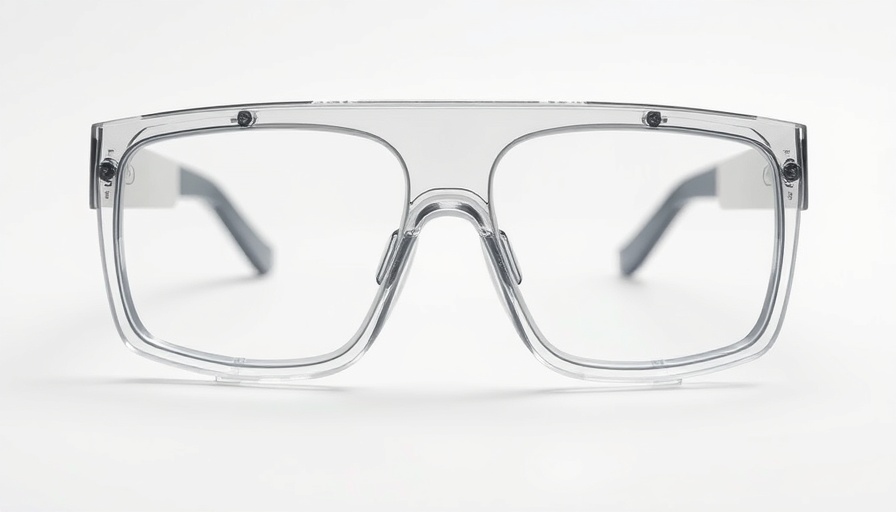
Meta's Vision for AR: A Game Changer in Marketing
As technology continues to advance, businesses are constantly seeking innovative ways to connect with their audiences. One of the most promising advancements on the horizon involves augmented reality (AR). Meta, previously known as Facebook, has recently provided a glimpse into its upcoming Orion AR glasses, unveiling potential that could revolutionize social media marketing.
What We Know About Aurora AR Glasses
Meta's Orion AR glasses are designed to overlay digital information onto the physical world, creating interactive experiences for users. This technology's core functionality goes beyond mere aesthetics; it's embedded with features that facilitate immersive social media engagements.
- Enhanced User Interaction: With voice commands and gesture controls, users will experience a new era of interaction, altering how they engage with digital marketing content.
- Seamless Integration: The glasses promise to bridge the gap between physical and digital engagement, allowing users to access real-time social updates while navigating their environment.
- Data-Driven Insights: Built-in analytics tools may provide user engagement metrics that can enhance advertising strategies and ensure content is tailored to meet audience needs.
The Future of AR in Social Media Marketing
The implementation of AR within social media can offer myriad opportunities for businesses attempting to differentiate themselves in a crowded marketplace:
- Interactive Advertising: Brands can leverage AR to create interactive ads that captivate potential customers, providing them with a unique experience that entices them to engage.
- Enhanced Storytelling: With AR's visual capabilities, companies can utilize storytelling techniques more effectively, building deeper connections with consumers.
- Targeted Marketing: Using data analytics, marketers can target specific demographics with personalized AR experiences, enhancing conversion rates through tailored content.
Strategies for Embracing AR Technology in Your Marketing
As businesses prepare for the launch of these AR glasses, here are some strategies to incorporate AR into marketing plans:
- Experiment with AR Effects: Use AR filters or effects on platforms like Instagram to engage your audience interactively.
- Develop AR Campaigns: Create campaigns that encourage users to share their AR experiences, boosting brand exposure.
- Monitor Analytics: Utilize built-in analytics to assess what AR elements resonate with your audience and adjust your strategies accordingly.
Challenges and Considerations
While the prospects of AR are exciting, several challenges exist that brands must navigate:
- Consumer Acceptance: Gauging user comfort with AR experiences is essential, as not everyone may be ready for such technology.
- Technical Limitations: Brands must ensure that their AR content is accessible across various devices for widespread reach.
- Privacy Concerns: As AR technology involves data collection, maintaining transparency and complying with privacy regulations remains crucial.
The Road Ahead: Digital Marketing Trends 2025
With AR integrating into social media marketing, it's crucial for professionals and businesses to stay abreast of these emerging trends. Anticipate a landscape where AR not only enhances user interaction but also establishes itself as a necessary tool for successful digital marketing.
In conclusion, embracing AR can elevate brand engagement, drive conversions, and set your marketing efforts apart in an oversaturated market. Now is the time to explore how augmented reality can redefine your marketing strategies and captivate your target audience.
If you're eager to stay ahead in the rapidly evolving digital marketing landscape, explore innovative strategies and embrace tools that enhance your brand's visibility and engagement.
 Add Row
Add Row  Add
Add 




Write A Comment